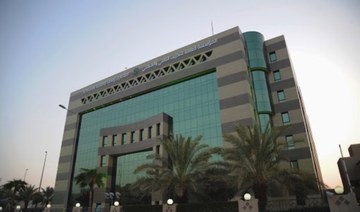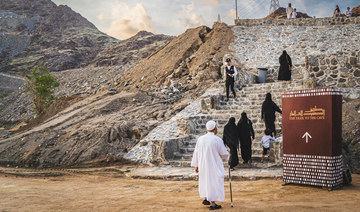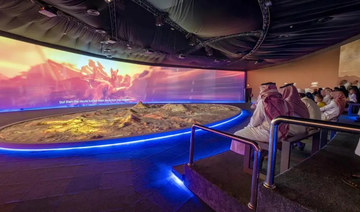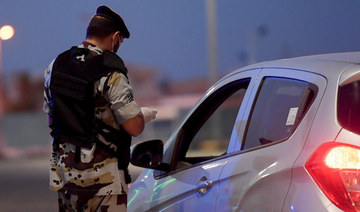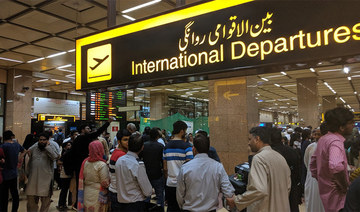RIYADH: The Saudi Ministry of Human Resources and Social Development is focusing on a skills strategy to improve professional standards for workers and those entering the labor market, according to Abdullah Abuthnain, the vice minister.
Abuthnain said that the strategy will benefit more than 200 professions, with skills councils establishing employment standards, as well as on-the-job training programs, in important economic sectors.
FASTFACT
The strategy will benefit more than 200 professions, with skills councils establishing employment standards, as well as on-the-job training programs, in important economic sectors.
The vice minister made his comments during the inaugural Scientific Conference for Labor Market Research, Studies and Indicators, organized by the National Labor Observatory, an affiliate of the Human Resources Development Fund, in collaboration with Princess Nourah bint Abdulrahman University.
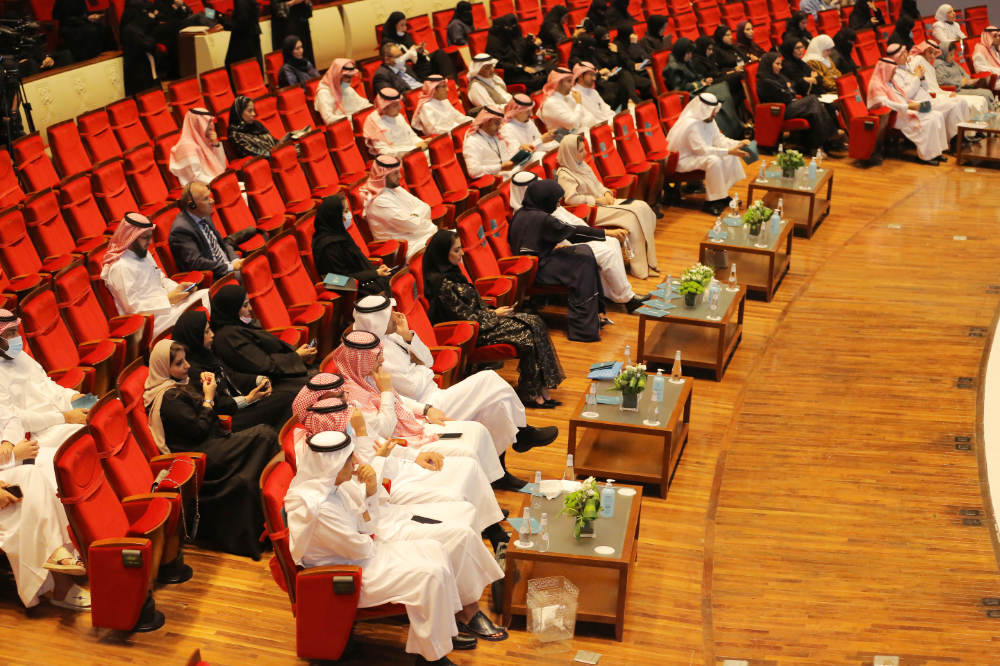
Academics and professionals gathered in Riyadh on Tuesday for the First Scientific Conference for Labor Market Research, Studies, and Indicators organized by Princess Nourah bint Abdulrahman University. (Supplied/HRDF)
During the opening session of the two-day conference in Riyadh on Tuesday, Abuthnain said that Saudi Arabia’s labor market is presently in “a phase of big reforms,” including eight strategic labor market themes and 25 development initiatives.
The ministry has established a “forecasting of supply and demand” unit within the human capacity development program, which will provide researchers with data, information and insights into labor market trends.
The unit identifies opportunities and challenges facing the labor market by issuing specialized reports showing future trends, he said, adding that the unit will primarily assist educational institutions in designing educational and training programs.
Abuthnain expressed optimism about the Kingdom’s labor market, which has seen “positive developments in its indicators and gains,” noting that more than 2 million Saudis now work in the private sector, “the highest figure historically speaking.”
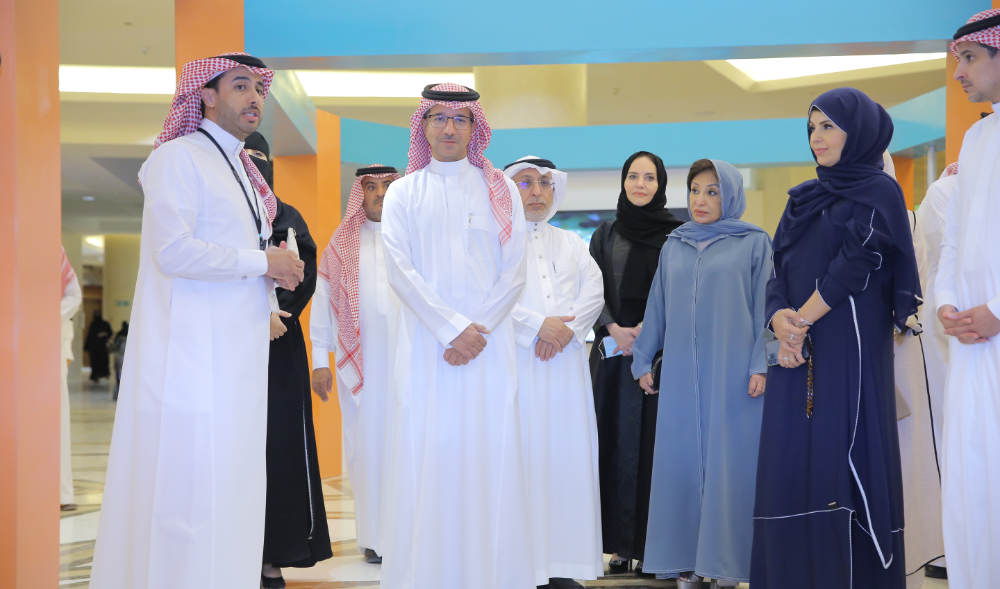
Mohammad Aalmughaiseb, Director of Research and Studies Department at the National Labor Observatory (NLO), Dr. Abdullah Abuthnain, Vice Minister of Human Resources and Social Development for Labor, Dr. Ahmed Al-Ameri, President of Imam Mohammed bin Saud Islamic University, Dr. Lilac Al-Safadi, President of Saudi Electronic University and Dr. Enas Al-Issa, Director of Noura University. (Supplied/ HRDF)
Economic participation has reached 51 percent, while economic participation of Saudi women has also reached 35 percent, “the highest figure historically.”
Turki Al-Jawini, director-general of HRDF, said that the fund had redesigned support programs with a focus on the impact assessment and analysis of big data; their relevance to the needs of beneficiaries; the possibility of measuring their reach, impact and efficiency; and the application of a governance model that enables the fund to adjust the design of the program to suit changing market needs.
“We at HRDF will work to develop and implement labor market policies by creating a sustainable national workforce, developing human cadres’ skills, providing them with knowledge and qualifications, and aligning them with labor market and job needs,” he said.
“We will use a strategy that prioritizes the beneficiary in the design and delivery of works and services and modernizes the human resources system by utilizing visions and sketching future labor market directions.”
Al-Jawini said that the HRDF strategy focused on three main objectives: Reducing the gap between education outcomes and labor market needs, increasing the efficiency of matching supply and demand, and enabling sustainable employment for groups facing labor market challenges.
Among the most significant problems for graduates is understanding labor market needs, linking labor market requirements with their skills, having the necessary experience, and possessing the most in-demand soft skills.
Direct coaching and mentoring for leaders comes within the framework of programs that support and empower women in the labor market, he said.
About 1,000 female leaders benefited from the programs, which helped find jobs for more than 65,000 women in private sector companies. Around 3,500 Saudi mothers benefited from Qurrah, a program that supports child care.
Al-Jawini said that about 51,000 Saudi women employees benefited from Wusool, a program that supports transport for female workers. About 7,000 job-seekers were employed in 2021, thanks to the Tamheer program, which offers female workers on-the-job training.
Mishaal Aledwani, professor of administration and educational planning at Imam Muhammad bin Saud Islamic University, said that Saudi universities are undergoing substantial change as a result of external developments, as well as advances in technology and knowledge development.
The Saudi labor market needs skilled graduates who can work efficiently. Saudi universities face challenges maintaining their status and excellence, both locally and internationally, through the use of innovative learning methods and the provision of training programs for students, Aledwani said.
According to the former dean of the faculty of social sciences, Saudi universities’ performance in adapting graduates to the needs of the labor market is “average.”
Aledwani said that his research had revealed that one of the most significant challenges facing universities is inadequate training and qualification of students before they enter the labor market.
This includes poor coordination between universities and employers to determine the skills graduates need.
Zaid Al-Khumishi, educational supervisor at the Saudi Ministry of Education, discussed the application of artificial intelligence in human resource professional development to suit the needs of the Saudi labor market.
Al-Khumishi has worked in the education industry for almost two decades, recruiting specialists in electronic technology to build training programs employing artificial intelligence.
He suggested designing artificial intelligence-based training programs that meet the needs of the Saudi labor market and workers “by conducting a comprehensive survey of those needs and setting priorities for them to build training programs that meet those needs.”






